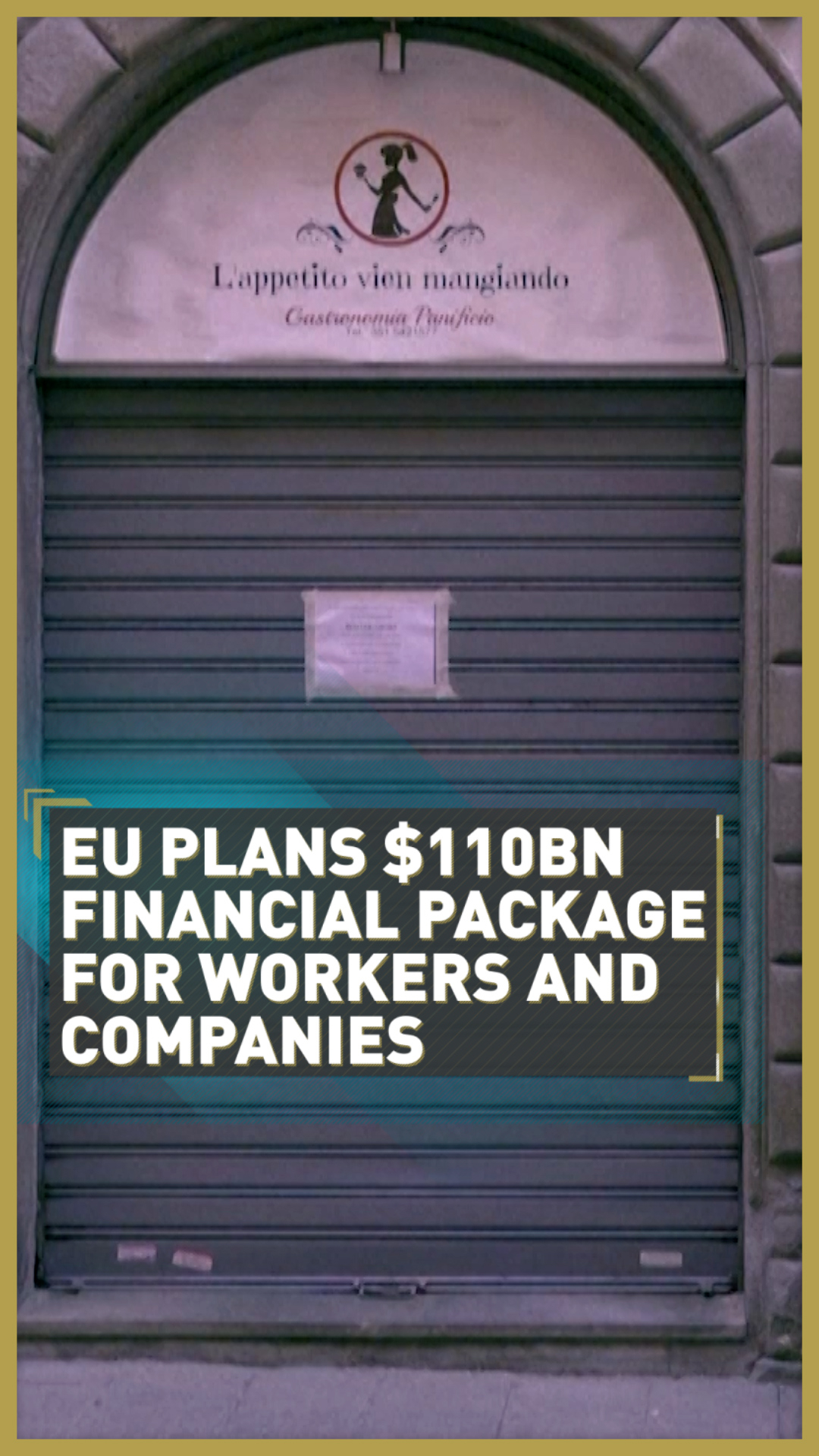02:00

The European Union is considering a major financial package for workers, which will pump $110 billion into the bloc's economy to help those hit by the COVID-19 outbreak.
Coronavirus has paralyzed just about every corner of European life. Hundreds of millions of people are locked inside their homes with many factories, restaurants and shops sitting idle. Which means many people's incomes have crashed.
The European Commission expects the EU to go into a deep recession this year, which has slowed economic activity to a crawl across the 27 member states. To help workers, they are proposing a funding package that will coincide with a reduction of working hours.
It wants EU countries to adopt a German scheme, through which employers cut working hours, not jobs, and the government pays the difference in salaries.
"[It] can benefit all the member states who want to use it," Commission President Ursula von der Leyen told a news briefing.

Closed shops on Regent Street, in London. /Tolga Akmen/AFP
Closed shops on Regent Street, in London. /Tolga Akmen/AFP
The funding is called SURE and it would mobilize $110 billion in loans – financed in the open market. Those loans would go to the countries worst-hit by COVID 19, and the money would support those governments' efforts to replace a large part of their workers' lost income.
Von der Leyen said: "When such a crisis hits, the most important part is to keep people in companies. So, therefore, the SURE scheme is the guaranteeing pillar because when you keep them in the companies, the knowledge stays in the business and in the company. And then the moment the world economy picks up again, those companies can take the order and recover quickly."
Keeping money flowing into households also helps to stabilize consumption and funding for areas such as social security.
Germany has used this model quite successfully in the past and it's seen as a big reason why the country recovered so quickly after the 2008 financial crisis, while Denmark, Sweden and Norway also have similar programs, reported CGTN Europe's Toni Waterman in Brussels. She said: "These loans will be available to all EU countries and will be guaranteed by EU countries to the tune of $27 billion."
Von der Leyen has said she's spoken to several leaders and that there is strong support for the program, so she expects the proposal to be quickly adopted. Some even see this as an alternative to the controversial "corona bonds."
SURE would bring the total amount of approved funding in the EU to $3 trillion, by far the largest ever spent on a crisis. It should help blunt some of the economic damage being caused by the coronavirus and the next challenge will be the long-term recovery.
The proposed measures, which still need the approval of the European Parliament and EU member states, will apply retroactively from 1 February and will be available until 31 December.